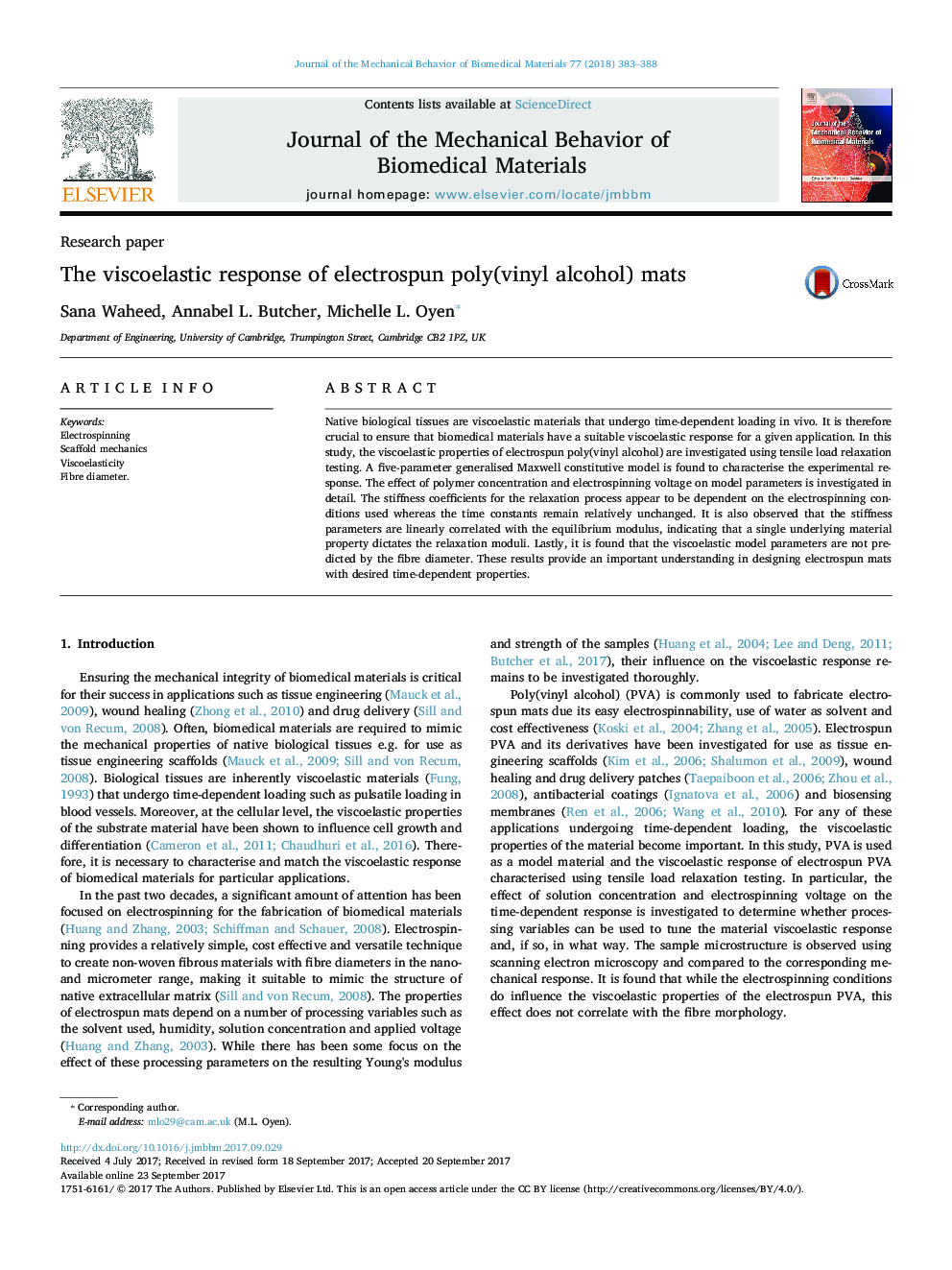| Article ID | Journal | Published Year | Pages | File Type |
|---|---|---|---|---|
| 5020368 | Journal of the Mechanical Behavior of Biomedical Materials | 2018 | 6 Pages |
â¢Load relaxation tests were carried out on electrospun poly(vinyl alcohol).â¢The effect of electrospinning voltage and polymer concentration was investigated.â¢Relaxation stiffness moduli could be tuned but the time constants could not.â¢Fibre diameter did not predict the viscoelastic model parameters.
Native biological tissues are viscoelastic materials that undergo time-dependent loading in vivo. It is therefore crucial to ensure that biomedical materials have a suitable viscoelastic response for a given application. In this study, the viscoelastic properties of electrospun poly(vinyl alcohol) are investigated using tensile load relaxation testing. A five-parameter generalised Maxwell constitutive model is found to characterise the experimental response. The effect of polymer concentration and electrospinning voltage on model parameters is investigated in detail. The stiffness coefficients for the relaxation process appear to be dependent on the electrospinning conditions used whereas the time constants remain relatively unchanged. It is also observed that the stiffness parameters are linearly correlated with the equilibrium modulus, indicating that a single underlying material property dictates the relaxation moduli. Lastly, it is found that the viscoelastic model parameters are not predicted by the fibre diameter. These results provide an important understanding in designing electrospun mats with desired time-dependent properties.
Graphical abstractDownload high-res image (247KB)Download full-size image
